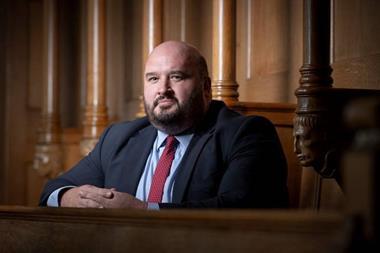The Church of England’s national investing bodies have banned investment in nine companies and stuck with 12 after asking them to meet certain climate change-related standards, according to an announcement today.
They said they would divest the restricted companies in which they have holdings as soon as possible. As of 21 October, the total value of their holdings in the companies was £32m (€34.9m).
Ten of the 12 companies that stayed off the new restricted list did so because they sufficiently improved their disclosure, governance or strategy, according to the Church of England announcement.
The remaining two – Polish power company PGE and Reliance Industries of India – are being given more time to make changes after demonstrating positive engagement.
The investors’ actions are the part of a programme, approved by the Synod in 2018, to shift investments away from companies that are “unwilling to act upon the financial, physical or reputational risks posed by climate change”.
The 2020 divestment “hurdles”, which were approved in 2019 alongside a set for 2023, are the first applied to implement the 2018 decision. Companies were informed in 2019 if they were deemed at risk of not meeting the standards.
In its statement, Church of England said it was the first time that the national investing bodies – Church Commissioners for England, the Church of England Pensions Board and CBF Church of England Funds – had restricted companies that fall short of specific carbon emission standards.
The companies in question are: American Electric Power (USA); Anhui Conch Cement (China); Berkshire Hathaway (USA); FirstEnergy (USA); Formosa Petrochemical (Taiwan); Korea Electric Power Corp (Korea); Oil & Natural Gas (India); PPL (USA); and SAIC Motor (China).
Church of England named Duke Energy, Vistra Energy, Power Assets Holdings and Rosneft as companies that made changes following engagement, citing 2050 net-zero targets set by the former two and improvements in climate-related disclosure by the latter two.
Church of England Pensions Board has committed to the emissions associated with its investments being net-zero by 2050 and Adam Matthews, director of ethics and engagement at the £2.9bn fund, said the actions announced today were “a further step in aligning our investments to that objective”.
“It is also a key part of meeting the commitments we have made to our beneficiaries and stakeholders,” he added.
“We have demonstrated it is possible to secure change in company behaviour and we will continue to engage robustly with companies that could fall short of our hurdles in the next three years as we continue to play our part in supporting the low carbon transition.”
Bess Joffe, director of responsible investment for the Church Commissioners for England, which manages an £8.7bn investment fund, said: “We are pleased with the response we’ve had from the 12 companies that improved their performance over the past year. Engaging with companies to align with the goals of the Paris Agreement helps ensure we reduce our portfolio’s emissions without limiting our universe of investable companies.
“However, those companies that fail to take adequate action to mitigate climate change have no place in our portfolio,” she added.
The standards that companies were asked to meet were set using data from the Transition Pathway Initiative, an asset owner-led initiative for assessing companies’ preparedness for the transition to a low carbon economy. It is preparing to move into assessing sovereigns, too.









